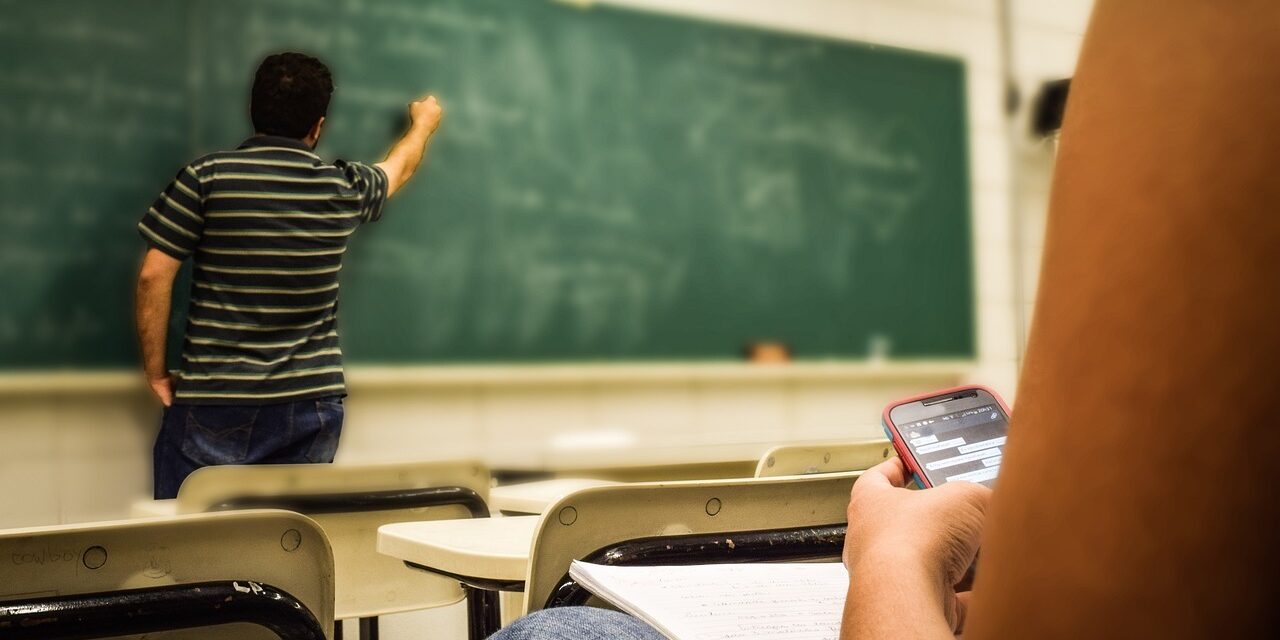What's going on?
Children's mental health has been declining for more than ten years, and the spread of smart devices plays a decisive role in this. At home, the government has stepped in, from the new academic year it is forbidden to use telecommunication devices in public education institutions. We investigated whether the step was necessary. A few months ago, the government announced that they would limit the use of smartphones in schools, and the relevant decree was published in the first half of August. According to this, in the future, elementary school and high school students must hand in devices suitable for image or sound recording, telecommunications and internet access smart devices at the beginning of the day, and they will only receive them back at the end of the day.
In his Facebook post published in connection with the decree, Balázs Orbán, the prime minister's political director, pointed out that other countries are also considering stricter regulation of the use of telephones in schools, and several European states have already taken decisive steps.
Foreign regulations: they are ahead of us
In France, the use of telephones during school hours has long been prohibited, and since 2018, mobile phones have been prohibited for children under 15 in the entire school area, including the lunchroom. The regulation also applies to tablets and smart watches. Anyone who brings such a device to school must keep it in the locker until the end of the school day. In Bavaria and Greece, since 2006, the law also prohibits the use of mobile phones in primary and secondary schools. According to the rule passed in Italy years ago to protect the private sphere, not only severe disciplinary punishments, but also fines of up to 30,000 euros try to deter students from making recordings in the classroom.
Even countries that are considered liberal limit the use of cell phones in schools, such as the Netherlands. Negotiations between teachers, parents and students about the new legislation will take place until October.
In a letter to the lower house of parliament, Education Minister Robbert Dijkgraaf wrote that he hopes for a "cultural transformation" that will positively affect the atmosphere in classrooms. "The mobile phone is an essential part of our everyday life. It provides access to information, connects people, and is an important tool in modern society. However, its role in the classroom is increasingly controversial. Studies have shown that non-educational use of mobile phones significantly impairs students' ability to focus."
The excessive use of gadgets also appeared in the results of the PISA tests: the children's reading comprehension and problem-solving ability deteriorated"
In Finland, it has also been recognized that the use of mobile phones at school is causing students' performance to deteriorate, and this affects the country that is usually a PISA champion in a particularly bad way. The right-wing government wants to strengthen the powers of teachers and school principals to intervene in classes in activities that disrupt learning. Currently, schools do not have the right to prohibit students from bringing mobile phones with them.
In the United States of America, the matter is regulated at the member state level. Somewhat unusually, the restriction does not depend on the political color of the national leadership. Four Republican-led states, Ohio, Indiana, Oklahoma and Florida, already restrict phone use in schools. Florida passed a law last year requiring school districts to ban phones from classrooms and block access to social media on school Wi-Fi. The legislation also specifies that students "learn about the social, emotional and physical effects of social media." In June, the BBC writes that the two most populous member states, the Democrat-led New York and California, are working on similar regulations.
Gavin Newsom, the progressive governor of California, the savior of the Democrats - a potential future presidential candidate - announced in June that he wanted to ban smartphones in classrooms.
According to information from the Federal Ministry of Education, 76 percent of schools already banned non-learning use of phones in the 2021-2022 school year. The BBC adds: the country has been trying to regulate the use of communication devices in schools since the 1980s, and the smartphone is only the last in line. But regulation has fluctuated: California revised its phone ban in 2002, and New York City, home to a million students, left it up to schools in 2015 instead of a blanket ban. Now, it seems, they are increasingly voting in favor of the restriction at the school, school district and member state levels. We are insidiously addicted to the phone
At the MCC Festival, American child psychologist Erica Komisar, author of several books and expert on mental resilience, said:
"Children under the age of 16 should not be given smartphones, in fact this should be regulated by law. There's the plain mobile phone, that's just enough to keep in touch. For years, Google has been producing phones for children that can only be used to make calls and text messages. I spoke to the relevant manager of the company at a conference and he said that parents simply don't buy this product because the children's friends also have smartphones.”
Clinical psychologist Emőke Bagdy, professor at Károli Gáspár Református University, described the nature of telephones as "a transmitter, a temporary device, so to speak, stood between two people and became a separator, even though it wanted to be a connector." He added that device dependency already exists.
The fact that we are so used to the phone plays a role in the fact that we use it more and more for our work, and the process was only strengthened by the covid epidemic. According to Bagdy, currently
"We are in a state of repair, since after the destructive effects of this process have been assessed, we are now in a hurry to do something. Restriction is really the only option. De-addiction is essentially a process of renunciation”.
According to him, the government measure will cause tension and protests, so it is not worth expecting favorable consequences in the short term, only in the long term. "There will be a real result if the child, the student himself, understands the rule and wants to follow it, no matter what the loss is." He added: it is also better to introduce the ban as soon as possible, because it will become natural for those who encounter it as a child. And instead of the phone, something different should be offered, such as sports, joint games, even concentration and relaxation exercises, he added.
Emőke Bagdy also interpreted the mobile phone phenomenon in a broader context: "The mobile phone grows above eye contact, it takes over the function of the living eye. This is tragic because in the meantime, about a quarter of a century ago, mirror neurons, the generators of our emotional life, were discovered in the right hemisphere of the brain. During live speech, it reacts and recharges during eye contact. Looking at each other during a conversation is not conscious, it is an involuntary moment, this is metacommunication. All this is not in the public consciousness, and in the meantime the game, joy, and enjoyment of mobility may have taken over.
Suddenly and imperceptibly, like a tsunami, we were overwhelmed by the positive experience of using the device, this is the insidiousness of habituation. It's very simple: what's comfortable and light, people quickly take it.
This is how we are with food, drink, alcohol and other substances that cause a feeling of well-being. Although the mobile phone limits our emotional life, it makes us emotionally starved. We don't even notice that we are not feeling well, nor that we are destroying the relationship between us. Let's not forget, life itself is being in relationships, where we understand and feel the other." They choose entertainment
Ákos Pöltl, family safety expert at the MCC Youth Research Institute and head of the Defense Education and Research Center of the Pannon University, stated that, in his opinion, schools should develop training on how to support education with the appropriate use of technology, without "personal screens". The expert emphasized to our paper that he considers it a huge misunderstanding that technology would be banned from schools by limiting the use of smartphones.
"Smartphones, tablets and laptops only distract. If a tool is used for fun and learning, the child will always choose what is more favorable for him, that is, fun whenever he can"
he drew attention.
The entire article can be read on Mandine!
Featured image: Giovanna Cornelio / Pixabay













